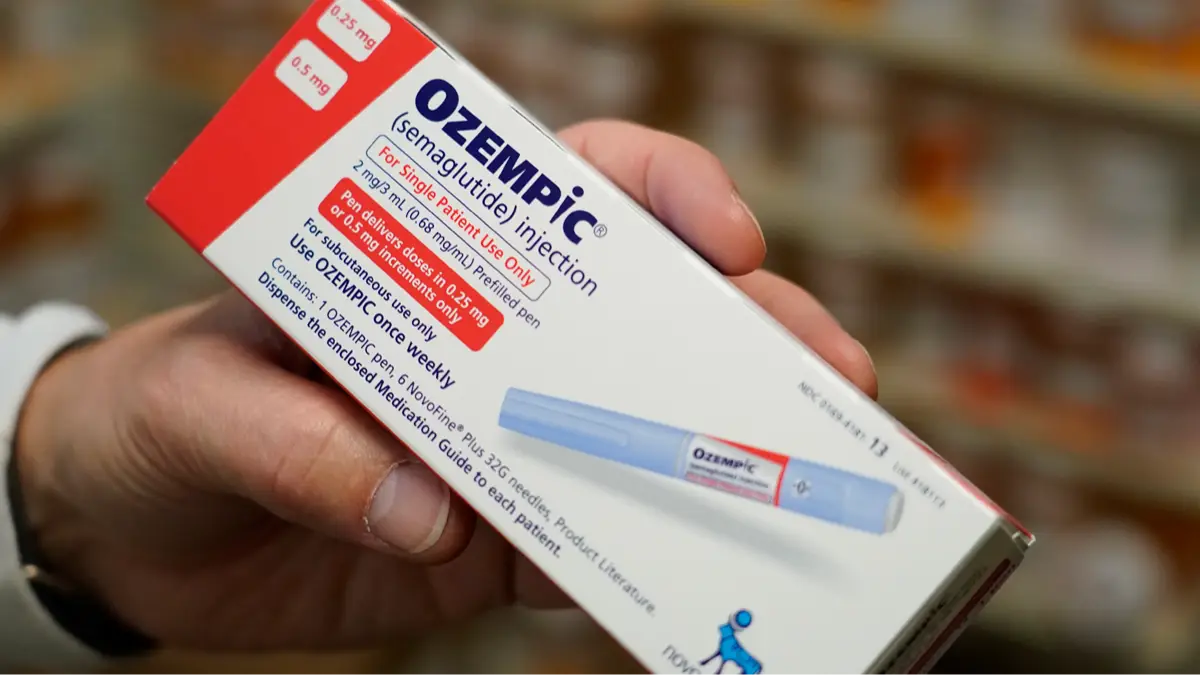
Despite the many people praising medications like Ozempic, some are unaware of the potential issues that can arise from taking such drugs, including a serious 'boxed warning' from the FDA.
Along with other medications such as Wegovy and Mounjaro, Ozempic has quickly become the weight-loss drug of choice for many, despite not being its intended use.
The drug, an injection for people with type 2 diabetes to help them manage their blood sugar levels, has been praised by celebrities who have said it helped them lose weight.
Ozempic was approved in 2017 by the US Food and Drug Administration (FDA) to help diabetics, and works through its active ingredient semaglutide, which mimics the body's natural GLP-1 hormone responsible for regulating appetite.
Advert
The medication is administered once a week, with dosages starting from 0.25mg before increasing each time to the limit of 2mg.

However, many remain unaware of the many side effects that can occur from taking the drug and others like it for weight loss. People also remain unaware that current research shows that some regain the weight they lost when they come off such drugs as well.
As people start to learn of the potential side effects, one health expert has highlighted one of the warnings on the box that some will be unaware of.
Here everything you need to know about the warning, including what experts have said and a new study which could throw a major spanner in the works.
What is a boxed warning?
According to a Healthline report written by registered pharmacist Malini Ghoshal, the boxed warning for Ozempic and other GLP-1 drugs is one of the ‘most serious’ issued by the FDA.
Essentially, a boxed warning or a ‘black boxed warning’ (due to the border often found around them) are required by the FDA for certain medications that carry serious safety risks.
These safety risks often bring attention to potentially serious or life-threatening side effects from using a prescription or over-the-counter drug.

What boxed warning does Ozempic and other GLP-1 drugs come with?
Most concerningly, the Healthline report stated: “Ozempic has been shown to cause thyroid tumors and thyroid cancer in animals. It is not known whether Ozempic can cause thyroid tumors or medullary thyroid cancer in humans."
The warning can read: “If you have a family or personal history of medullary thyroid cancer or a rare endocrine condition called multiple endocrine neoplasia syndrome type 2, you should not take Ozempic.”
New study could dispute cancer concerns
Despite the concerns around cancer and the use of GLP-1 medications, a new study published in April last year argued that these concerns may be unfounded.
The study concluded treatment with GLP-1 receptor agonists was not linked with any substantial increase in risk for thyroid cancer in people who were followed up on average for 3.9 years.
The researchers behind the study noted that a small increase in risk could not be entirely ruled out but argued it would be no greater than a 31 percent increase in relative risk.
Before you panic, in other words, this would mean no more than 0.36 excess cancers per 10,000 person-years would occur, compared to the background incidence of 1.46 per 10,000 person-years in those who had used a different type of diabetes medication.

What have the experts said about the risks?
Dr. Kristopher M. Day, founder of Pacific Sound Plastic Surgery, who was not involved in the study, reflecting on its findings.
He said: "The recent findings that GLP-1 drugs, such as Ozempic, do not increase the risk of thyroid cancer, differ from previous studies primarily because of advancements in research technology, including more precise analytic tools, and a better understanding of the drug’s pharmacodynamics.
“A significant aspect could also be the longitudinal follow-up in recent studies, offering insights into the long-term impacts of these drugs, which wasn’t as prevalent or detailed in earlier research."
He added that developments from these studies allow for more nuanced examination of the drug's impact on the human body.
If you are considering taking any GLP-1 drug, you are advised to first speak with your healthcare professional.